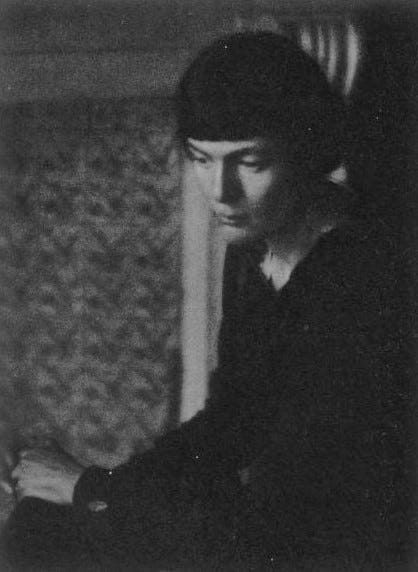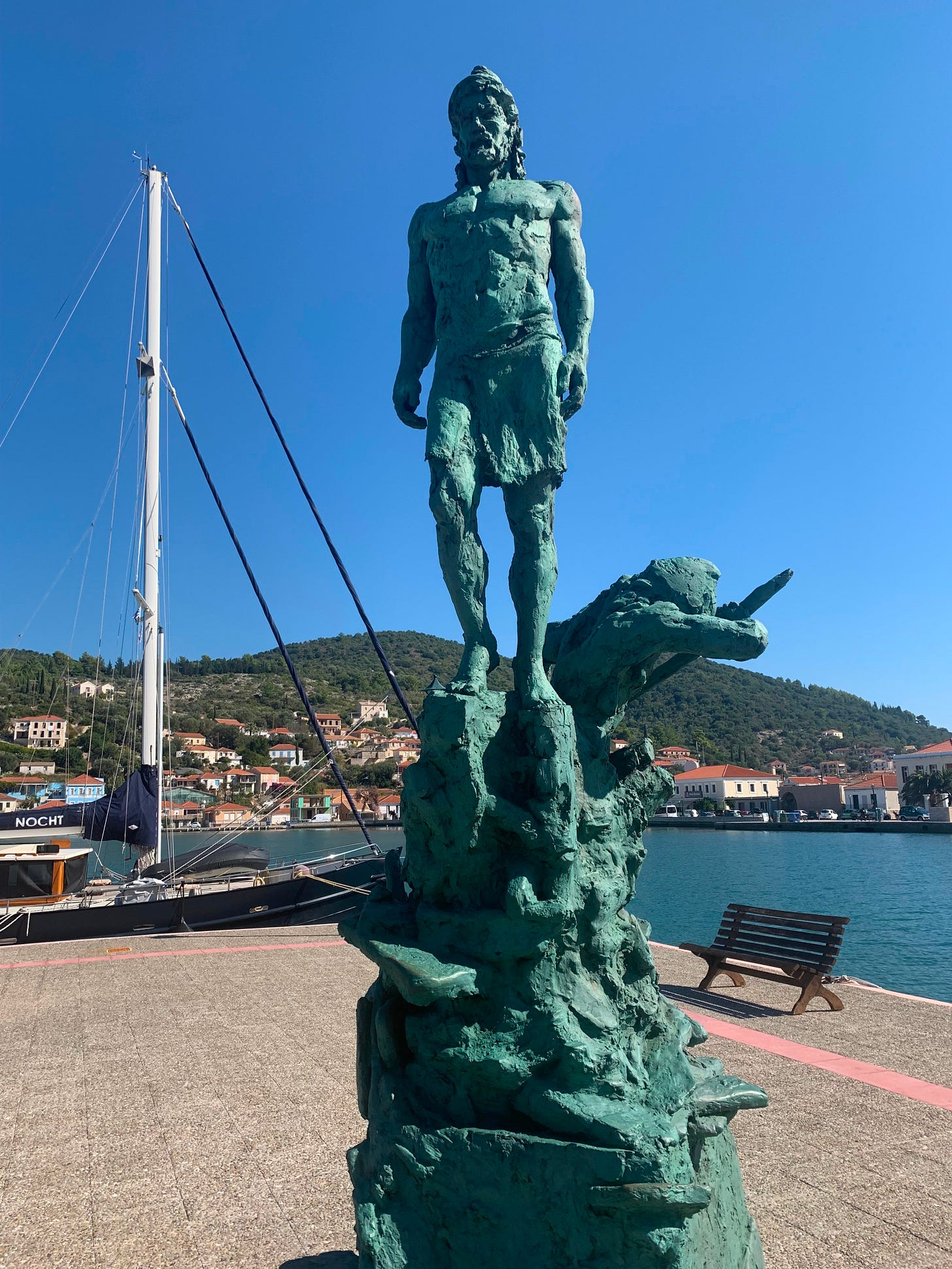Reception in Poetry: At Ithaca, by H.D.
Over and Back the Long Waves Crawl...
This is a new series/style of post here on A Reception Collection. Think of it as a cousin to Reception Radio, but with short posts about poetry instead of about music.
For the inaugural Reception In Poetry entry, I had to choose one of my all-time favorite poems, from one of my all-time favorite poets. H.D. (the pen name of Hilda Doolittle) was an American poet, active in the early to mid-20th century. She was part of the Imagist group of avant-garde poets, who were interested in clarity of language and sharp description. They reacted against the florid language of 19th century poetry in various ways: H.D. did this by drawing inspiration from the sparse, direct phrasing in ancient Greek texts. Her work is heavily influenced by literature from antiquity. Poems like At Ithaca entwine ancient themes, characters, and stories with modern language, as well as feminist and queer sentiments.

Although H.D. distanced herself from Imagism later in life and experimented with different modes of language, At Ithaca is fully in line with her earlier stylings. It was originally published in 1924, in her poetry book Heliodora. I really admire how the poem interweaves story elements from the Odyssey: disparate pieces of the narrative flow into each other seamlessly. As the title suggests, these narrative pieces paint a picture of lonely, wistful Penelope, delaying suitors and waiting for Odysseus’ return. However, is she really as wistful as she’d like us to believe? This poem’s Penelope is full of internal turmoil and contradiction: she blames Athena for part of this turmoil, but is the goddess really interfering in her life, or is Penelope using the divine to externalize one of her feelings? H.D. manages to convey all this and more with a wonderfully brief selection of words; it’s a fitting choice for the famously guarded, internally complex Penelope. I marvel at how carefully H.D. chose every syllable!
Here is the full text of At Ithaca:
Over and back,
the long waves crawl
and track the sand with foam;
night darkens and the sea
takes on that desperate tone
of dark that wives put on
when all their love is done.
Over and back,
the tangled thread falls slack,
over and up and on;
over and all is sewn;
now while I bind the end,
I wish some fiery friend
would sweep impetuously
these fingers from the loom.
My weary thoughts
play traitor to my soul,
just as the toil is over;
swift while the woof is whole,
turn now my spirit, swift,
and tear the pattern there,
the flowers so deftly wrought,
the borders of sea blue,
the sea-blue coast of home.
The web was over-fair,
that web of pictures there,
enchantments that I thought
he had, that I had lost;
weaving his happiness
within the stitching frame,
weaving his fire and frame,
I thought my work was done,
I prayed that only one
of those that I had spurned
might stoop and conquer this
long waiting with a kiss.
But each time that I see
my work so beautifully
inwoven and would keep
the picture and the whole,
Athene steels my soul.
Slanting across my brain,
I see as shafts of rain
his chariot and his shafts,
I see the arrows fall,
I see the lord who moves
like Hector lord of love,
I see him matched with fair
bright rivals, and I see
those lesser rivals flee.
For further reading, here is an extended biography of H.D., as well as links to more of her poetry. This will be far from her last appearance on Reception in Poetry, trust me!



Ha! so good to follow the stepping stones of this longish early poem from HD, Nina. And I"m glad to see you promise more from her later on.
I've been waiting for H.D. to make an appearance!